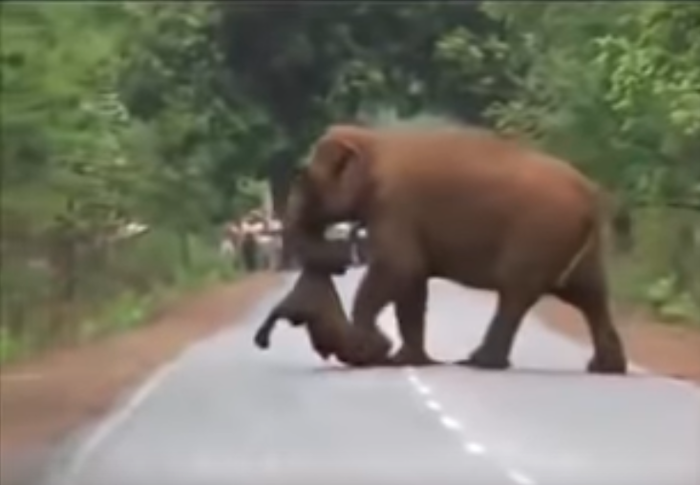
By Rich Co
According to a LiveScience feature, asian mourning elephant mothers, much like their African counterparts, perform rituals for their dead calf.
New research shows that Asian mourning elephant mothers, similar to their African counterparts, mourn their deceased by carrying the dead calf in their trunks for days or sometimes weeks.
Sanjeeta Sharma Pokharel of the Smithsonian’s National Zoo and conservation biology institute, along with Nachiketha Sharma of the Kyoto University Institute for Advanced Study, explained that Asian elephants (Eliphaz Maximus) are social creatures that exhibit emotional responses to the loss of one of their conspecifics.
Pokharel and Sharma, co-authors of the study, pointed out that understanding how elephants react to death could have far-reaching implications for their conservation.
The two researchers observed that people who see an elephant react to a dead relative develop some sense of kinship, compassion, and empathy toward that species.
They added that anything that directly connects people could pave the way for coexistence in elephant ranging countries.
African Elephants and Asian Elephants
The researchers pointed out that African bush elephants (Loxodonta Africana) have been observed to react emotionally when a member of the herd dies.
The elephants’ reactions include approaching the corpse and touching it with their drunkards, kicking at the carcass, and standing nearby as if standing guard.
However, Asian elephants live in forested habitats, the researchers point out, which makes it more difficult to observe the animal.
Brian Aucone, senior vice president for biological sciences at the Denver Zoo, pointed out that Asian elephants can be up to 100 feet away from the observer and the observer still can not see the elephants because the forest is so dense. Aucone is not involved in the study.
Studying Videos
The two researchers, along with Raman Sukumar, a co-author, decided to conduct the observation using YouTube, a video platform. In their search for keywords related to Asian elephants and death, the team found 39 videos of 24 instances between 2010 and 2021 in which Asian elephants reacted to the loss of a herd member.
The search found only 4% for semi-captive elephants, i.e., animals working in the timber industry or tourist parks in Asia. 16% are captive elephants and the rest, 80%, of the videos show wild elephants.
The research team reports that some of the most noticeable behaviors in the videos are when a calf dies. In five of the 12 videos, an adult female is seen carrying the calf. Judging by the condition of the corpse, the mother elephant had been carrying the dead calf for days or weeks.
Other common elephant reactions seen in the videos include restlessness or alertness when elephants are near the corpse.
The elephants also show exploratory movements, such as approaching or examining the body, or touching and smelling it. Aucone pointed out that elephants communicate through their sense of smell, so it is not surprising that the elephant sniffs the corpse.
Aucone also pointed out that this is similar to cases where the zoo has to euthanize older elephants due to illness or infirmity. The staff gives the herd a chance to say goodbye to their fallen member. The survivors often sniffed the deceased elephant or put their trunks to its mouth, which is a social behavior among elephants.
Complete Article ↪HERE↩!
